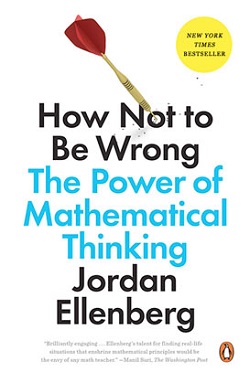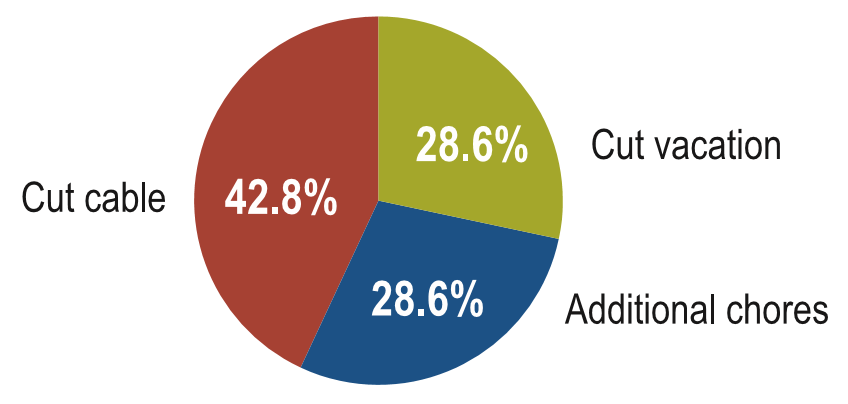What We're Reading Now
How Not to Read Polls
11 October 2016
Eden read How Not to Be Wrong: The Power of Mathematical Thinking by Jordan Ellenberg and found herself thinking about the world more carefully.
Tags: books, eden read, math, polls
With a title after my own heart and an author who knew better than to split the infinitive, How Not to Be Wrong: The Power of Mathematical Thinking, immediately grabbed my attention (and the attention of Bill Gates). Not just another “How to” book, author Jordan Ellenberg gives us a “How Not to” book that delves into the common fallacies of economic, philosophical, and social thought with fun, contemporary anecdotes and short histories of early mathematicians.
Each major part of How Not to Be Wrong introduces a seemingly straightforward question and then proceeds to deconstruct and rebuild the ideas behind each one in a way that makes you challenge your preexisting beliefs and wonder why you hadn’t questioned them sooner. At times some of Ellenberg’s explanations are a bit hard to follow, but if you enjoy the people side of math more than the math side of math this book is still for you.

Most interestingly to me, How Not to Be Wrong takes a look at the ways that people use and misuse data. For example, in his chapter, “There Is No Such Thing as Public Opinion,” Ellenberg addresses how polls are commonly misinterpreted in the media. To illustrate this, imagine you have a family with seven kids. The kids are allotted a certain amount of spending money each month, but recently they asked you for an increase in allowance. You give them three options. They can either (1) cut cable since they stream most shows anyway, (2) take a shorter vacation, or (3) do additional chores around the house.
Three kids vote for cutting cable, two vote for a shorter vacation, and two vote for extra chores.

You could say several true statements based on these results:
- The majority (57.2%) is against cutting cable;
- The majority (71.4%) is against cutting vacation; and
- The majority (71.4%) is in favor of cutting spending.
Wait. How can all three statements be true when they say contradictory things? Are your kids both for and against cutting spending? Are they irrational? Of course not! If this were actually your family, you would understand that your kids have seven different opinions. Yet, oftentimes we see the media talk about the “majority” like it’s an individual who wants to have its cable, vacation, and allowance too. It’s a simple example, but it is meant to demonstrate how pitting majority opinions against one another can make a group of rational individuals seem irrational.
One more thing to note is that any one statistic by itself will tell you a true, but very different story. When looking at the polls, it’s important to use the whole pie because any one slice (or combination of slices) can be misleading. This was my favorite insight from the book.
Overall, Ellenberg’s chapter titles are intriguing and his chapter descriptions, hilarious. His topics range from calculus (taught in one page) and the problem with statistical testing, to strategies for winning the lottery and choosing the best wingman. Since finishing the book I have yet to go a day without reflecting on what I learned and I highly recommend How Not to Be Wrong to anyone who enjoys wit, tolerates math, and wants better tools for thinking about everyday life.







Comments
Our Comment Policy:
Our blog posts are only half of the conversation. What our readers have to say is equally important to us, and we're grateful for all the comments that continue the dialog.
To ensure that the discussion here is as useful as possible to all of our readers, please be respectful of our contributors and refrain from harassing, threatening and/or vulgar language. We reserve the right to screen and remove any comments from the site. If you have a question about a comment or want to discuss our policy, please contact us. We'll talk it over.
There are no comments for this entry yet.